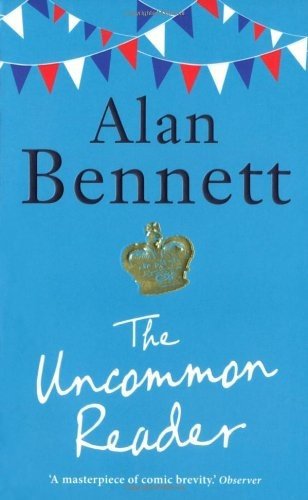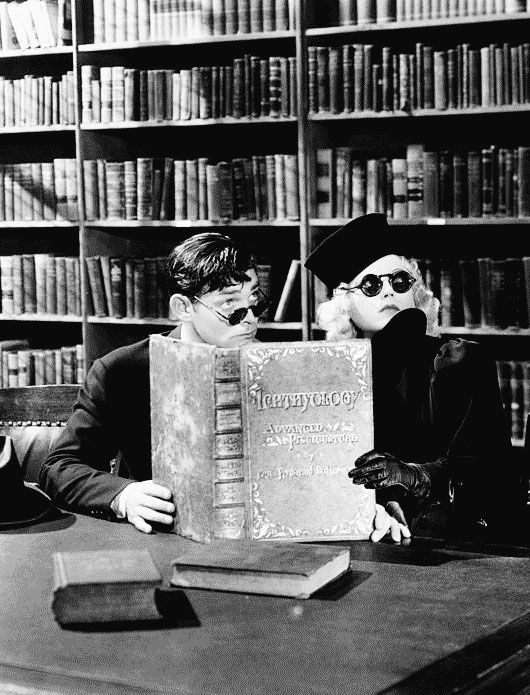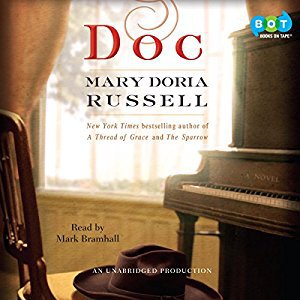When we think about Queen Elizabeth II, the first concept that comes to our mind is that of an elderly, authoritative, composed and always well dressed woman, totally lawful to her institutional duties, perfectly loyal to the precepts of politness and always measured in gestures and words.
The microcosm gravitating around the walls of Buckingam Palace, with its valets, receptions and political summits with local and foreign guests, requires her a flawless behavior and a perfect self-control. This last one, in particolar, actually came in handy when she had to face and relieve the pressure from the media that threatened to overwhelm her whole family for decades.
But what if Elizabeth II, by unforeseeable circumstances, found out there’s a lot more than this beyond the gates of the palace? What would happen if she discovered she has lost a world full of feeling and emotions, even tough she has lived a full and, in a way, extraordinary life?
 Cover of “The uncommon reader” by Alan Bennett, published by Allen & Unwin.
Cover of “The uncommon reader” by Alan Bennett, published by Allen & Unwin.
Those are the questions Alan Bennett tries to answer with his The uncommon reader, in which the author imagines that one day the queen, while searching for her dogs running unruly in the courtyards of the royal palace, unexpectedly comes across a van, similar to the ones used during the movers, and finds out with real amazement that the vehicle is nothing but a library. It is a mobile library, parked by the kitchens of the Palace and, as she will discover soon, it stops in Buckingam Palace once a week, on wednesday, when Mr. Hutchings, the librarian, parks his van next to the kitchens, in order not to annoy anyone and be closer to his only regular customer, Norman. Norman is a young red headed boy working in the kitchen and whose appearance, not very attractive, precludes him any opportunity to have a career as a vallett.
The sovereign, out of her faultless respect for good manners, can’t help herself from climbing the steps and enter the van packed with books, just to apologise for her dogs, who continue barking, making annoying noises.
Obviously, both the librarian and the boy immediately stare incredulous at her as she walks inside the van and, acting perfectly normal, starts looking around and asks the man for an advice on which book she should borrow.
Mr. Hutchings kindly asks her about her taste in books. At that very moment, however, the queen suddenly realises she had never thought about it: reading was a hobby, and a queen doesn’t have enough time to get a hobby.
“It was a hobby and it was in the nature of her job that she didn’t have hobbies. Jogging, growing roses, chess or rock climbing, cake decoration, model aeroplanes. No. Hobbies involved preferences and preferences had to be avoided; preferences excluded people. One had no preferences. Her job was to take an interest, not to be interested herself”
However, it would be inconceivably impolite to leave empty-handed, and Mr. Hutchings might think she dislikes his work and books, so the queen starts seeking for something to read and chooses a novel by a certain Ivy Compton-Burnett. That book will bore her to death so when she goes back to the library the following week, she’s pretty sure she won’t borrow another one. That’s until her eyes gaze on the cover of The pursuit of love by Nancy Mitford, a book that will shock and upset Elizabeth, turning the serious queen into a voracious reader.
She had never missed a meeting before, she had never been late for an institutional commitment, but since she started reading her day seems to be too short and all that she wants to do is to be alone with her books. Moreover, the queen starts questioning everybody about their favorite books and asking politicians what are they currently reading, causing great embarrassment and disappointment at court. However, the queen can’t stop her uncontainable passion for literature and she just keeps reading every book she can get her hands on, even when she’s forced to do it on the sly.
“What she was finding also was how one book led to another, doors kept opening wherever she turned and the days weren’t long enough for the reading she wanted to do”
The magic power of books, previously unknown to her, opens up a whole new world of knowledge and imagination she neglected for a long time, allowing her to achieve higher states of consciousness leading to a critical thinking which is all new to her. All of a sudden, the queen can see clearly the golden cage she has lived in, a cage with bars made of hierarchies, bows and rules.
“The appeal of reading, she thought, lay in its indifference: there was something undeferring about literature. Books did not care who was reading them or whether one read them or not. All readers were equal, herself included. Literature, she thought, is a commonwealth; letters a republic”
Well, we can’t deny the power of books. Thanks to their words, they can dig into our souls and minds, helping us rediscover what’s buried deep inside and cleaning up our eyes from the veneer of conformity that all too often overshadows some of the nuances of our political reality. Such a great power is dramatically scary for those who can’t control it and are terrified with the idea of a queen who develops an interest in the life of other people, a queen who shows empathy and curiosity about all that surrounds her. Fear drives the members of the royal court to stigmatize reading, playing tricks with the queen in the hope of restoring her to her senses. In the meantime, Elizabeth is fighting against a greater fear: the fear of being lost, deprived of all of her certainties, for reading is not acting and she has always been a woman of action. So, what could be the best compromise between reading and acting? Sure, writing! Elizabeth starts with some little side notes handwritten on books and… Who knows where this way may lead her?
I literally fell in love with Alan Bennett’style of writing. He can mix irony, English humor and subtle social commentary creating an irresistible blend. His Elizabeth II is a smart, funny and breezy woman, who wants to break free from the chains of her court’s closed-mindedness. I thinks she was just adorable while she tried sharing her new love for books with other people and I loved any amusing conversations she had with her husband, prince Philip. The uncommon reader is a short novel that can be read in a couple of hours and never fails to get a big laugh. Moreover, this book is an ode to the beauty of books, those irresistible siren calls that will always charm readers like us.
I wonder if queen Elizabeth II ever read this book because, if she’s half the ironic and clever woman Bennett has described, I’m sure she would enjoy it!
Advertisements Condividi:




